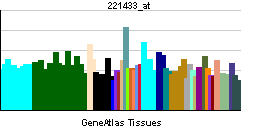Groundbreaking Study Reveals FGF21 Protein Extends Lifespan in Mice

Recent research conducted by scientists at the University of Texas Southwestern Medical Center has discovered that overexpressing the fibroblast growth factor 21 (FGF21) protein in the adipose tissue of adult male mice can lead to a remarkable 26% increase in lifespan, even while consuming a high-fat diet. This study, published in the journal Cell Metabolism on May 13, 2025, presents significant implications for understanding obesity-related health issues and longevity.
The study's lead researcher, Dr. Christy M. Gliniak, along with a team of experts, aimed to investigate the role of FGF21, a hormone primarily produced in the liver that has been previously associated with improved metabolic health. According to Dr. Gliniak, “Our findings suggest that FGF21 not only enhances lifespan but also provides metabolic benefits that are independent of growth suppression.”
Obesity is a major health concern in the United States, affecting approximately 35% of adults over the age of 65, and it has been linked to various chronic conditions such as insulin resistance and fatty liver disease. The FGF21 protein has garnered attention in scientific circles for its potential to modulate metabolism across various tissues in mammals, leading researchers to explore its therapeutic applications.
In this groundbreaking experiment, researchers engineered male transgenic mice, aged 10 to 12 weeks, with a doxycycline-inducible, adipocyte-specific FGF21 overexpression system. The experimental protocol involved administering a high-fat diet supplemented with doxycycline, which activated the transgene, prompting FGF21 production specifically in adipose tissues. This selective activation resulted in a median lifespan increase from 1.765 years in control mice to 2.225 years in the FGF21 overexpressing group, with some individuals living up to 3.30 years.
The study meticulously tracked various health metrics, including body weight, food intake, glucose tolerance, serum lipid profiles, and liver histology. Notably, mice with increased FGF21 levels demonstrated significant improvements in insulin sensitivity, reduced fasting glucose levels, and lower serum triglycerides and cholesterol concentrations. Histological assessments also revealed decreased liver steatosis and fewer inflammatory markers in adipose tissues, indicating a reduction in obesity-related inflammation.
Expert opinions on the findings have varied. Dr. Sarah Johnson, a Professor of Metabolism at Harvard University, remarked, “While the results are promising, translating these findings from mice to humans remains a significant challenge. Further research is necessary to determine the clinical applications of FGF21-based therapies.” Meanwhile, Dr. Mark Thompson, an endocrinologist at the Mayo Clinic, emphasized the potential for FGF21 to serve as a therapeutic target in obesity management, stating, “If we can harness this protein's effects safely in humans, it could revolutionize our approach to treating obesity and its complications.”
The implications of this research extend beyond individual health. With the global obesity epidemic on the rise, finding effective interventions could alleviate the burden on healthcare systems. According to data from the World Health Organization (WHO), obesity-related conditions cost the U.S. healthcare system approximately $147 billion annually.
Looking ahead, the prospect of developing FGF21-based treatments raises questions about regulatory pathways and ethical considerations in human trials. The research team plans to conduct further studies to understand the long-term effects and safety of FGF21 manipulation in humans.
In summary, the discovery of FGF21's role in extending lifespan in obese mice presents an exciting avenue for further exploration. As researchers continue to investigate the metabolic benefits of this hormone, the potential for developing innovative therapies to combat obesity and enhance longevity remains a tantalizing prospect.
Advertisement
Tags
Advertisement





